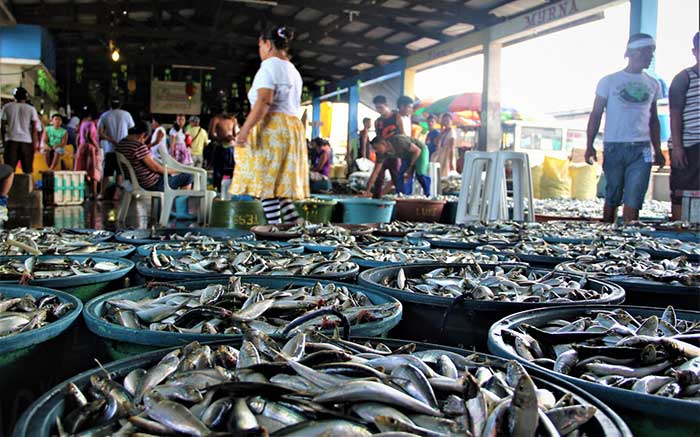The Bureau of Fisheries and Aquatic Resources (BFAR) and the Canned Sardines Association of the Philippines (CSAP) yesterday signed a memorandum of agreement (MOA) ensuring continuous and sufficient supply of fish for canneries during the closed fishing season in the country.
In another development, the Samahang Industriya ng Agrikultura (SINAG) assured the declaration of state of calamity in two towns in Iloilo due to African swine fever (ASF) will not have a significant impact on prices of pork during the holiday season.
Under the agreement between BFAR and CSAP, the former will link and help registered municipal fishing associations sell their sardines catch to canneries during the closed fishing season from September to February of each year.
Fishing season is closed from November to January in Northeast Palawan; from November 15 to February 15 in the Visayas Sea and; from December 1 until March 1 is closed in the Zamboanga Peninsula.
During these periods, commercial fishers are not allowed to operate which CSAP earlier feared could cause a shortage in canned sardines. However, municipal fishers are allowed to catch during this period.
Under the agreement, BFAR will also provide post-harvest support and necessary equipment such as coolers, chest freezers and ice making machines in identified landing sites wherein the consolidation of fish catch will take place.
BFAR must also assure that identified fisherfolk are compliant with the government’s food safety and traceability requirements and facilitate transportation or logistics support.
“Aside from sustaining and ultimately increasing, the supply of sardines for canneries, the MOA intends to capacitate municipal fisherfolk on proper fish handling, food safety standards and processing technologies,” said Demosthenes Escoto, BFAR officer-in-charge, during the signing ceremony.
Escoto added the program is initially set to be implemented in Sorsogon and Zamboanga with a funding of P8.5 million.
BFAR also said municipal fisher folks were pooled to facilitate sales transaction with CSAP as canneries also require good quality and quantity of catch.
The agency said it will leave pricing negotiations between the municipal fishing associations and CSAP.
The agreement mandates CSAP to ensure its members observe fair trade in negotiating with municipal fishing associations and strictly comply with the terms and conditions in purchase orders.
Francisco Buencamino, CSAP executive director, said the group is optimistic the partnership will be fruitful, especially that canneries will need 72 million kilograms of tamban between now and the end of the closed fishing season by February.
But Bencamino said CSAP will not withdraw its petition for an increase in the suggested retail price of sardines by P3 per can.
Meanwhile, SINAG said the declaration of state of calamity by the local governments of Oton and San Miguel in Iloilo is simply meant to “equip” municipal and provincial governments with resources to combat the further spread of the disease.
“The volume of the pigs culled is minimal to the overall stock of local hogs. These is no significant impact as to the supply and prices of pork as we approach the holiday season,” SINAG said in a statement yesterday.
However, SINAG warned some sectors may try to take advantage of the situation,.
SINAG added as meat processors are dependent on imported meat, the situation in Iloilo should have “no impact to the prices of ham and other processed meat.”
Rolando Tambago, Pork Producers Federation of the Philippines president, concurred with SINAG’s opinion but noted the continued spread of ASF is still a concern.
The Department of Agriculture’s Bantay Presyo of markets in Metro Manila showed the prevailing price as of yesterday of kasim is at P300 per kg while liempo is at P370 per kg.




